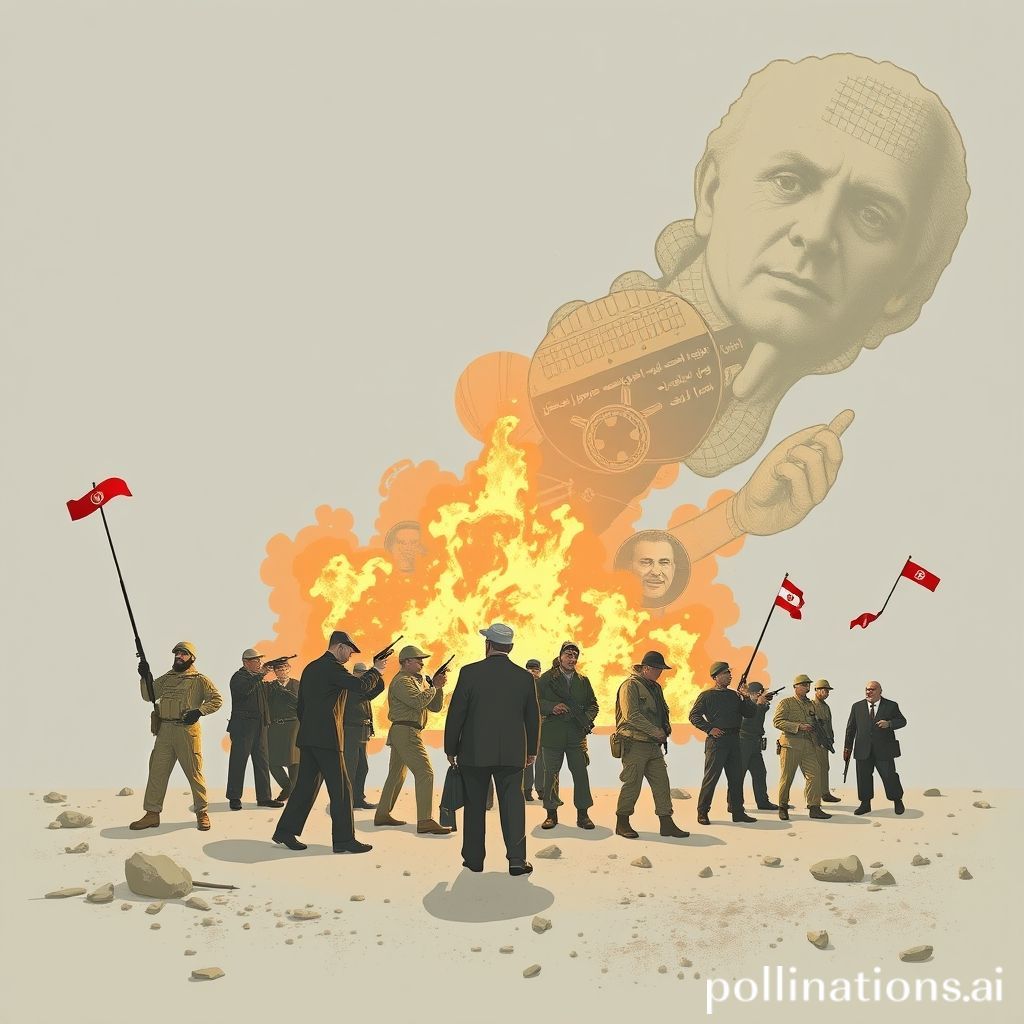
Why some key Tehran allies have stayed out of the Israel-Iran conflict
Decoding the Silence: Why Key Tehran Allies Are Sitting Out the Israel-Iran Conflict
Hey everyone,
The recent tensions between Israel and Iran have sent ripples across the globe, sparking debates and raising concerns about a potential regional war. While Iran and Israel have directly engaged, a notable aspect of this conflict has been the relative silence and inaction of some of Tehran's key allies. This begs the question: Why have these actors, traditionally vocal in their support for Iran, chosen to stay on the sidelines? Let's delve into the complex web of motivations behind this strategic restraint.
The Axis of Resistance: A Network of Shifting Priorities
For years, Iran has cultivated a network of regional allies, often referred to as the "Axis of Resistance." This alliance includes groups like Hezbollah in Lebanon, Hamas and Palestinian Islamic Jihad in Gaza, and various Shia militias in Iraq and Syria. These groups have, in the past, served as proxies for Iran, furthering its regional agenda and deterring its adversaries. However, the recent conflict has revealed a nuanced reality where allegiance doesn't automatically translate into direct involvement.
Hezbollah: A Calculated Pause
Hezbollah, arguably Iran's most powerful and strategically important ally, has maintained a cautious approach. While engaging in limited cross border exchanges with Israel, it has refrained from launching a full scale assault. Several factors contribute to this restraint.
Firstly, Lebanon is currently grappling with a severe economic crisis and political instability. A major conflict with Israel would be devastating for the country, further exacerbating its existing woes. Hezbollah, as a dominant political force in Lebanon, is aware of the potential backlash it would face if it plunged the nation into another war.
Secondly, Hezbollah's military capabilities, while formidable, are not unlimited. Engaging in a protracted conflict with Israel would deplete its resources and expose it to significant losses. The group is likely conserving its strength for what it perceives as a more existential threat or a more opportune moment.
Thirdly, there may be a divergence in strategic goals. While both Iran and Hezbollah share a common animosity towards Israel, their priorities and timelines may not always align. Hezbollah's primary focus is on maintaining its power and influence within Lebanon, while Iran's regional ambitions are broader and more encompassing.
Hamas and Palestinian Islamic Jihad: Confined by Circumstance
The Palestinian groups in Gaza, Hamas and Palestinian Islamic Jihad, also face significant constraints. Years of blockade and military operations have weakened their capabilities. A direct confrontation with Israel, particularly in the aftermath of recent conflicts, would be a costly endeavor.
Furthermore, these groups are heavily reliant on external support, including financial and military aid from Iran. Engaging in a major conflict without explicit Iranian backing could jeopardize this crucial lifeline. The destruction in Gaza is a constant reminder of what a full scale war with Israel entails.
Iraqi Militias: Divided Loyalties and Domestic Concerns
The Shia militias in Iraq present a more complex picture. While some factions remain firmly aligned with Iran, others have increasingly prioritized their own political and economic interests within Iraq. The Iraqi government, while maintaining close ties with Iran, is also wary of becoming a battleground for regional conflicts.
Furthermore, the presence of US forces in Iraq acts as a deterrent. Any major escalation by Iranian backed militias could trigger a response from the US, further destabilizing the country.
Syria: Survival Mode
Syria, ravaged by years of civil war, is primarily focused on its own survival and reconstruction. The Syrian government, heavily reliant on Iranian support, is unlikely to open a new front against Israel, especially given its weakened state.
A Comparative Look: Strategic Restraint in Action
To illustrate the nuances of each group's position, consider the following table:
| Group | Primary Focus | Constraints | Likelihood of Involvement |
|||||
| Hezbollah | Maintaining power in Lebanon | Economic crisis, potential backlash | Limited, calculated strikes |
| Hamas/PIJ | Survival in Gaza | Blockade, reliance on aid | Restrained, dependent on Iran |
| Iraqi Militias | Domestic interests, US presence | Divided loyalties, external pressure | Variable, opportunistic |
| Syria | National Survival, Reconstruction | War torn country, Dependence on Iran | Unlikely |
The Bigger Picture: A Shifting Middle East
The reluctance of some of Iran's allies to fully engage in the conflict with Israel reflects a broader shift in the Middle East. Many regional actors are grappling with internal challenges, economic pressures, and evolving geopolitical landscapes. The unwavering allegiance of the past is giving way to more pragmatic calculations and a greater emphasis on national interests.
Conclusion: A Time for Reflection
The silence of some key Tehran allies speaks volumes. It highlights the complex interplay of factors that shape regional alliances and the limitations of proxy warfare. While these groups may share a common ideology and a history of cooperation, their individual priorities and constraints ultimately dictate their actions.
In times of conflict, the absence of action can be just as telling as direct involvement. It forces us to question the assumptions we make about alliances and to recognize the ever changing dynamics of the Middle East. The current situation is not just a snapshot of the present; it is a window into the future, where national interests and pragmatic considerations may increasingly outweigh ideological commitments.

0 Comments:
Post a Comment